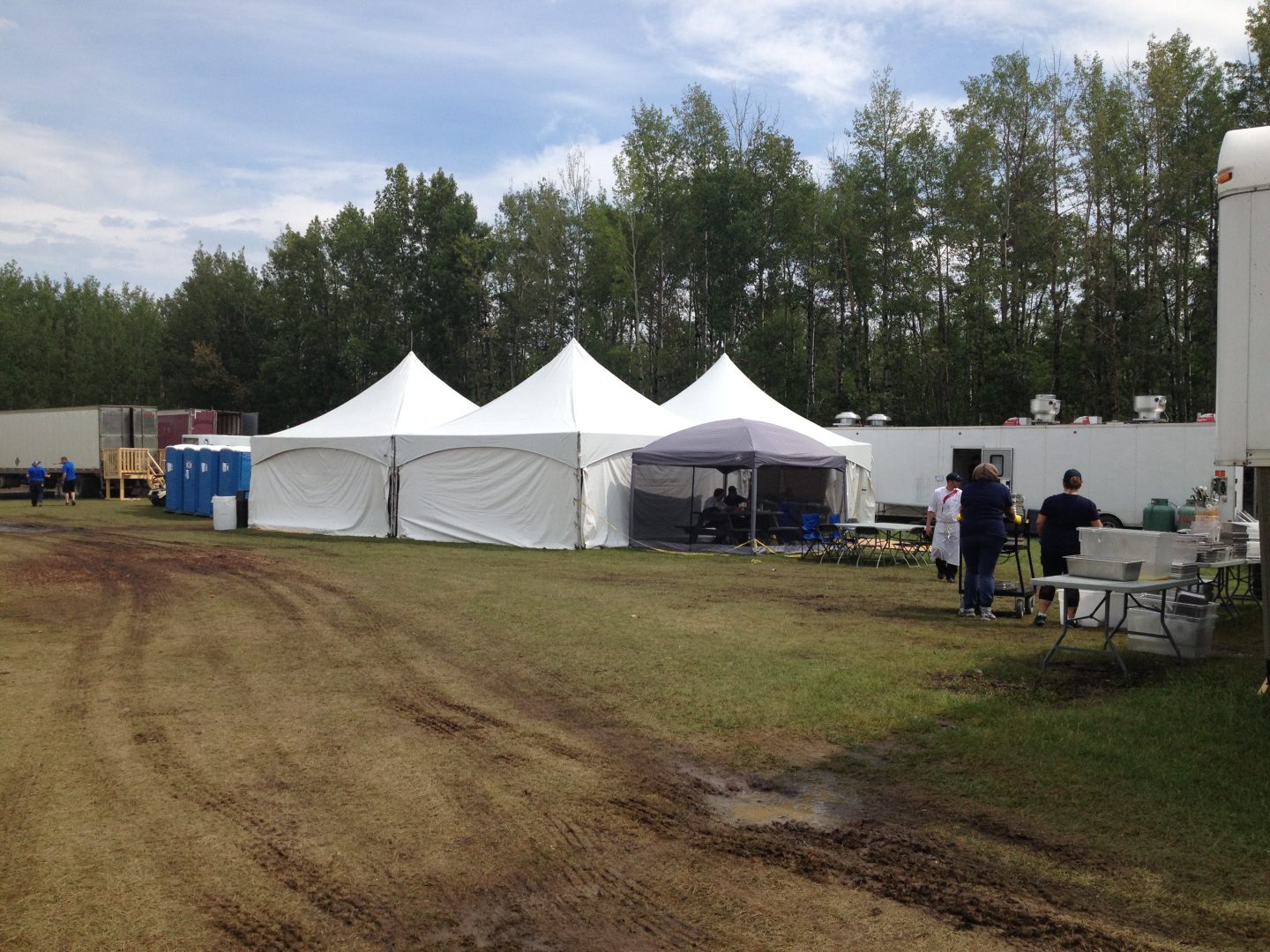Today we were fortunate enough to have a tour of the GM 2016 kitchen, led by Manager Robert, with Food Services head, Liz.
While seeking out Liz to ask a few questions, we were invited on a tour of the place where the magic (food) happens.
Our tour started out in the cold storage trailer, where all frozen foods are stored. Robert explained that the trailer (which seemed very full to us) was in fact quite empty, and that a new shipment would be arriving the next morning. The cooler was stocked with fresh fruit, taters, chicken, and more. The purpose of this trailer is to keep food cool before being used.
Next, we entered the pantry trailer, where any food that does not need to be kept cold is stored. This includes Rice Krispie squares, plates, cutlery, and cereals. We learned that 1000 plates and 250 pieces of cutlery come in each box, which disappears very quickly when you are feeding over 2700 mouths each day!
The next stop on our tour was kitchen trailer 1. Here, the fabulous chefs were busy preparing the meat for that night’s meal. The kitchen trailer includes HUGE ovens as well as walk-in fridges. The trailer was practically a sauna, but it sure smelled like heaven!
Kitchen 2 was up next. Vegetables were being prepared here, and it was almost identical to kitchen 1.
Though we couldn’t visit due to concern of cross-contamination, we were told that the third kitchen was solely for preparing special meals for those with allergies, gluten intolerances, and vegetarians.
Next, we visited the mini-freezer, where the food for that day is stored so it is out and ready to go when needed, yet still being kept cold.
The preparation tent was up next. Inside, the chefs were busy preparing platters and bottling juice to be served for the night’s meal.
The final stop was the dishwasher trailers. Fully equipped with sinks, special machines, and hose-style faucets, this is where all dishes used in preparation are washed and put away in their proper trailer.
After taking this tour, we realized just how lucky we are to have such amazing people preparing such delicious meals for us, as well as how fortunate we are to have this food to eat.
Thank you not just to Robert and Liz for the awesome tour, but to the wonderful kitchen staff who work very hard to keep us full on our Great Canadian Adventure!


Provide Feedback